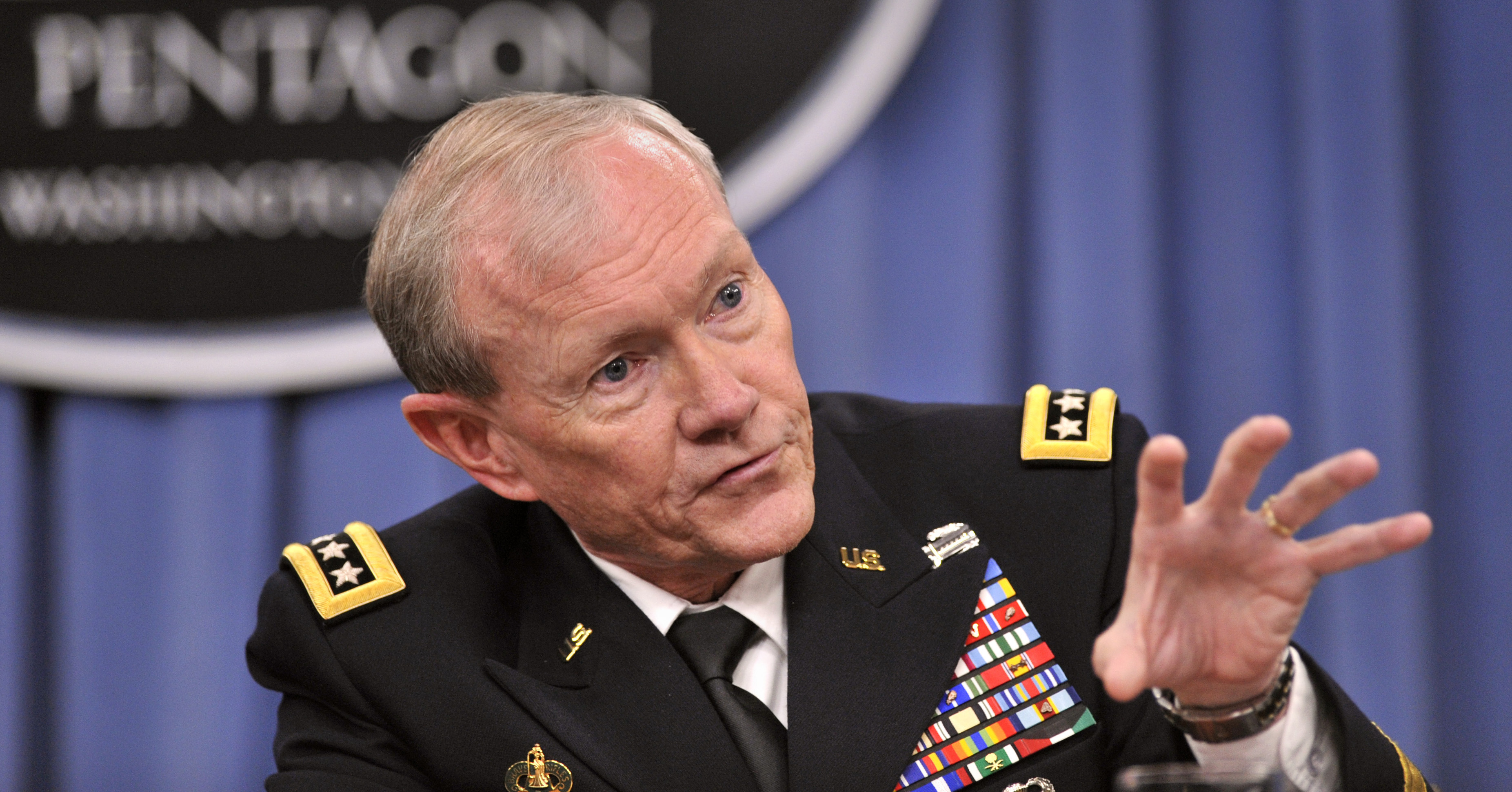
More Fiscal Focus From The Chairman Of The Joint Chiefs
Of all the perils facing the country, it is easy to focus on the obvious ones such as North Korean missiles or al-Qaeda affiliated terrorist groups. So when someone like the Chairman of the Joint Chiefs of Staff calls out the national debt it underscores the importance of examining U.S. national security from a much wider angle than is usually used.
Gen. Martin Dempsey, speaking at a Center for Strategic & International Studies event Monday in Washington, said the country is going through an “historical fiscal correction,” according to remarks reported by Politico, and that the U.S. needs to reduce its debt, but not through sequestration.
The national debt currently stands at approximately $16 trillion. Its rise, and the resulting impact on defense outlays, has made the Chairman of the Joint Chiefs of Staff an important force in Washington’s budget wars.
It is not the first time the Chairman of the Joint Chiefs of Staff, who is the president’s top uniformed military advisor, has called out the finances of the U.S. as a front-burner issue. While Dempsey’s views on the debt have been milder than those of his predecessor Adm. Mike Mullen, the fact that the nation’s top military officers find themselves taking on the subject on a regular basis shows how much fiscal pressure the Defense Department is really under. Adm. Mullen, for his part, repeatedly made clear be believed that the national debt was the “single biggest threat” to U.S. national security.
The debt is indeed a national security issue for many reasons. It is a matter of American competitiveness, creating an unsteady and worrying fiscal climate for the public and private sector. Sequester only worsens this. It also means the government has to spend hundreds of billions of dollars in interest that could, from the military’s perspective, otherwise be used support the Pentagon, which draws the biggest piece of the government’s discretionary spending. The debt also reflects the inability in Washington to tackle needed fiscal reforms by making long-term decisions that are bigger than any one political platform or party. It also puts the Pentagon’s current focus on Asia in a new light, considering together China and Japan together are the two largest U.S. creditors with more than $2 trillion in combined U.S. debt holdings.
Whether Gen. Dempsey’s eventual successor has to wage his own battle against the debt will depend, in part, on how lawmakers and the White House interpret his remarks.
Check out ASP’s White Paper on American Competitiveness that discusses these issues further:
Read our Blogs and Listen to our other podcasts in the series:
Podcasts:
American Competitiveness – Interview with former Gov. Christine Todd Whitman
Adm. William Fallon (Ret.) on sequestration and American Competitiveness
Sequestration – what’s happening in the States
American Competitiveness and National Security – Podcast
Blog Posts:
America’s Long-Term Test: Fusion Power
Moment near for a ‘grand bargain’ on the debt?
Veteran Unemployment and American Competitiveness
Living with uncertainty in the defense industry
Harvard Business School survey finds more pessimism about U.S. competitiveness
Competitiveness – Education: What most schools don’t teach
Sequestration – damage to American competitiveness
Energy R&D Critical to American Competitiveness








[…] More Fiscal Focus From The Chairman Of The Joint Chiefs […]